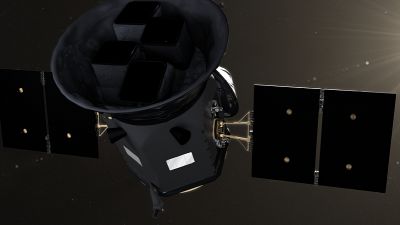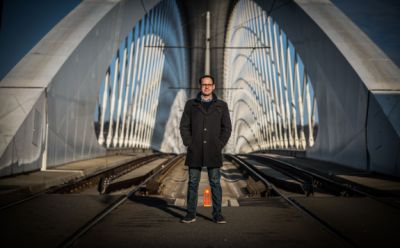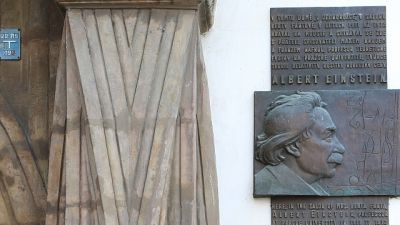Particle Prague 2022 is a five-day event offering high school students a week in the world of particle physics, organised by the Faculty of Mathematics and Physics at Charles University, the Faculty of Nuclear Sciences and Physical Engineering (FJFI) at CTU, the CTU Institute of Technical and Experimental Physics, the Institute of Physics of the Czech Academy of Sciences, the Institute of Nuclear Physics of the Czech Academy of Sciences and the Czech Physical Society. The event will be held in September but the deadline for registration is the end of the month.
“In addition to the educational aspect, the event has a great social significance. The students will get to know their peers with similar interests and the scientists themselves,” says one of the organisers, Vojtěch Pleskot from the Institute of Particle and Nuclear Physics at Charles University.
Particle Prague will bring together four research institutions: Charles University, the Czech Technical University in Prague, the Czech Academy of Sciences and the Czech Physical Society. “Students will get a glimpse into the nature of matter and at the same time into the scientific departments that deal with particle physics. They will see laboratories, talk to experts, meet people who have similar interests. They will also see what it is like to work with a trained physicist in small groups involved in mini-projects,” Pleskot says.
The event will take place from 5 to 9 September, but applications must be submitted by the end of April. “We are hoping to attract students between 15 to 19 who are interested in physics and are also active in various ways,” Pleskot continues, adding that the online application must be accompanied by a letter of motivation and recommendation and a list of previous activities, especially those related to physics - participation in school olympiads, competitions, excursions or camps. Based on the information provided, 30 students will be selected to take part in Particle Prague. “We will have about 15 expert guides, so they can give each person individual attention,” adds the organiser.
Particle Prague takes its inspiration from the European Organization for Nuclear Research (CERN) educational project, which runs a High School Students Internship Programme every five years, which is in great demand. In 2018, 240 Czechs applied, but only 24 were selected. Czech scientists working for CERN who invited local students to join the Swiss programme were sorry to have to turn many of them down due to limited capacity. They therefore decided to implement a Czech version of the programme the same year.
“It is not an event full of boring theoretical lectures, but literally an action-packed experience filled with all kinds of activities, from inspiring meetings with the biggest scientific personalities in the Czech Republic, to visits to state-of-the-art research centres, to a fun time spent with other young people, and a chance to build long-lasting friendships and useful contacts,” recalls current law and international relations student Richard Mittner who took part in the first edition of Particle Prague, which took place in September 2018. “It was packed with activities from start to finish,” adds Marie Princová, who is in her second year studying physics at Palacký University in Olomouc.
For those high school students, it was not only their first major introduction to science, but to university life in general. Students from outside of Prague tried living in a dormitory, from where they went to different workplaces every morning. They built a fog chamber in the Faculty of Mathematics and Phyics labs in Prague’s Troja, visited the computational farm of the Institute of Physics of the CAS, and went to see the largest particle accelerator in Řež.
In a similar spirit, the second edition of Particle Prague will be held after a four-year break caused by the coronavirus pandemic. “Each of the participants will sign up for one of the 20 mini-projects in advance and we will specify the programme according to their specific interests. The rule is that we want to give everyone as much individual attention as possible. We also want them to be able to get to know the scientists personally. Not only to talk about what their everyday life is like, but also to arrange to conduct their Secondary School Professional Activity or any other form of cooperation,” adds organiser Vojtěch Pleskot.
More information about Particle Prague 2022






















